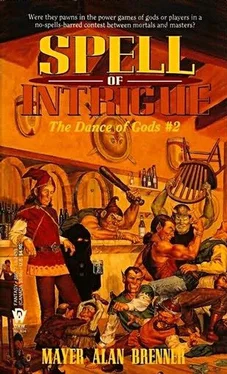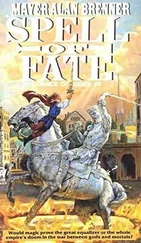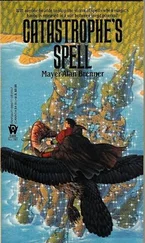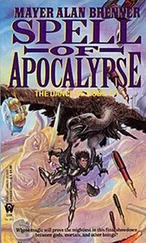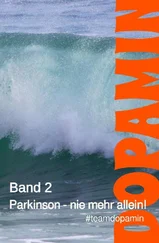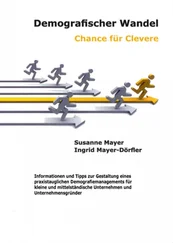People seemed to enjoy discovering the same thing over and over again. Accordingly, Oolsmouth was not the first city to take advantage of the strategic significance conferred by control of the mouth of the Oolvaan. Where Oolsmouth now stood, more or less, there had once been another city whose heyday dated back before the great Dislocation and the fall of technological civilization, and whose own descent into the swamp had probably been contemporaneous with it. The chronic overflow of the Oolvaan onto its alluvial floodplain and the silting of its delta had spared Oolsmouth’s ancestor from the fate of most structures of its period, or at least the fate of those structures that people could enter without dropping dead from one or another of the myriad curses of the ancients. The fate of virtually everything from before the Dislocation, not surprisingly, had been utter eradication through cannibalistic dismantling or sheer bad temper, so few discrete traces of the old world remained. There was always the tread of the suppressing foot of the gods to remember, too, as it descended metaphorically from the heavens to squash any signs and knowledge of the past, as well as those who seemed too freely interested in it. The ancients had been a crafty and cunning lot, however, so it wouldn’t have really surprised Groot one bit to discover that they had arranged for this city to be swallowed by the river and covered by a swamp, awaiting a more rational time for its excavation.
Of course, Groot had hung around with Maximillian the Vaguely Disreputable, who spent a lot of time trying to commune with the ancients in one way or another, so he acknowledged that his attitude toward them had most likely been colored by Max’s. Still, most of what the present age had pulled from the draining swamp over the past fifty years or so had been used not for study or glorification of the past, but for building materials. It was enough to make a sensible person wonder just how much the current civilization really differed from the savages of the past, especially when you saw what most of the scavenged building materials had been used to construct.
The Hall of the People hadn’t all been assembled out of exhumed parts, of course. Much of it was built of locally-quarried stone, and the majority of the outer surface was faced with marble imported, at significant but not totally unreasonable cost, by a consortium of merchants who had been on the Council at the time, when the Council itself had been an institution constituted solely for its promotional value by the government of Hugo the Autocrat. That Council had had nothing better to do than putter around with public works of marginal utility, although the precedent they had established had held through to the present modern time. Each edge of the building, including not only the four major corners and the margins of the roof but the cornices and window frames as well, had facings made not of stone but of ancient sheet metal, polished now to a slightly oxidized shine that made glancing toward the Hall on a sunny day a painful experience, and would leave one walking around distracted by bright afterimages for the next half-hour. In the domed roof of the rotunda above the Council chamber, too, the large translucent panels had been cast from a slurry of crazed, opacified, and pebbled fragments of ancient glass. Furthermore, for years the building had been generating rumors of secret passages, hidden partitions, and moving floors incorporating totally unnecessary bits of old flotsam and jetsam.
By anyone’s estimation, the architect had been a madman.
The Hall’s front facade, which Groot was squinting his way toward now, had been outfitted with more pillars and heroic statuary than strict good taste would have been comfortable with, and these elements of modern construction sat uneasily with the dour evidence of times now gone. Which wasn’t to say, Groot didn’t hesitate to admit, that all the gimcrack decoration would have fit better in any other surroundings. Bad taste had a certain timeless quality to it.
The Hall was outfitted with a variety of entrances in addition to that of the grand main door, with its excessive colonnade and exhausting flight of broad stairs and long coiled drowsing-griffin balustrades. The portal on the right side just around the corner from the plaza led to the main garrison of police and, beneath it, to the prison. Groot had not visited the basements before, but in the typical manner of people who knew that law-enforcement activity was constantly underway but who didn’t feel much personal connection with it, he’d been aware of where the jail was located and what was probably happening there.
Law enforcement was just one of the activities that had to proceed for a smoothly functioning society to exist, and it was no more of a star attraction than, say, tax collection. In the old days (not the days of the ancients, but the days of the present generation’s own great-grandparents, for example) when things were much simpler all around, albeit and undeniably much more savage and brutish, law enforcement was simultaneously a more arbitrary and a more crowd-pleasing enterprise, especially in its terminal stages. Now, though, Oolsmouth was a civilized place, and these were civilized times, so the bread-and-circus atmosphere fostered by peremptory public hangings, floggings, mutilations, rackings, and assorted other tortures had been firmly laid to rest, along with many of those who had experienced them at first hand. Groot was also aware through his contacts from the Council that the equipment and facilities for these various excruciations had not been destroyed, but were merely in storage somewhere in the building in front of him, stockpiled no doubt by prudent heads in the speculation of a future turn of the wheel, so to speak. Whether there were dark corners and hidden departments using these methods still was a question Groot was hoping would remained unanswered while whatever he was involved in played itself out.
After the piercing reflections from the metal details of the Hall’s exterior facade, the interior corridor of the police section proved to be a dimly-lit relief. The common area of the prison, though lit with equal inadequacy, proved less so. Long tunnels with barred gates snaked away from archways in three walls; the long narrow stair up to the ground floor, which they had just navigated, eased its way down the fourth. The jailer roused himself to produce a logbook from a niche under the stair as the troopers continued to hold Groot tightly, and between the two of them he and the sergeant noted Groot’s arrival on a fresh page.
“Make your mark here,” the jailer directed, pointing to a space next to their new set of totally illegible scratchings. Obviously they were used to dealing with common ruffians, Groot thought, as he instead inscribed his signature, complete with his usual intertwined loops and long sashaying underline flourishes. The jailer, a burly man with the troglodytic pallor of someone who has spent his entire working life indoors, gazed intently at the signature, then looked Groot up and down. He began absently licking his chops. “And what standard of accommodations be yer requesting, yer lordship?” he said. “Two, er, three silver ools will get you -”
“There will be none of that here,” said the sergeant. “This man is dangerous, and must be given no consideration beyond the needs of our own security; these are my orders.”
“But -”
“Do you understand?”
Eelmon had dogged their steps throughout the walk and was now hanging about next to the foot of the stairs, clutching the carpetbag as though he expected someone to try to rob him of it, here in the central jail. Eelmon was a trusty sort with a good head on him. Groot thought, a sturdy man; he knew his business. Groot caught his eye and nodded slightly. Eelmon pursed his lips and nodded back.
Читать дальше
